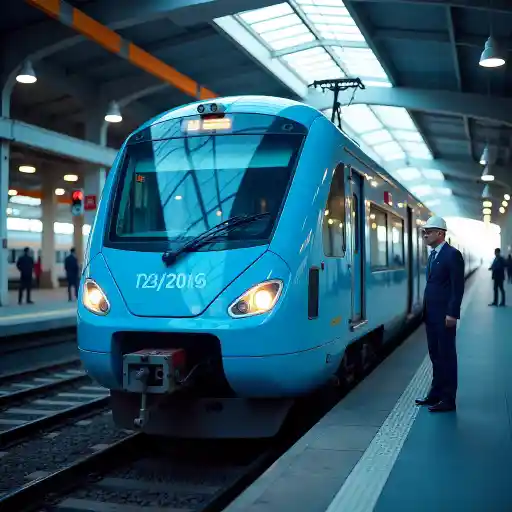India is gearing up to run its first hydrogen-powered train, a move that will make it the fifth country in the world—after Germany, France, Sweden, and China—to adopt hydrogen rail technology. Railway Minister Ashwini Vaishnaw announced the milestone on X (formerly Twitter), sharing a first look at the train and calling it a step towards a “future-ready and sustainable India.”
Most Powerful and Longest in the World
According to Indian Railways, this will be the world’s most powerful and longest hydrogen-powered train, capable of carrying 2,600 passengers. Testing of the first hydrogen-powered coach was recently completed at Chennai’s Integral Coach Factory (ICF).
The train is being developed as part of a pilot programme, converting a diesel electric multiple unit (DEMU) rake to run on hydrogen fuel cells, which produce only water as a byproduct.

Hydrogen for Heritage Programme
Under the ‘Hydrogen for Heritage’ scheme, the railways plans to deploy 35 hydrogen trains. Each will cost around ₹80 crore, while setting up route-specific infrastructure will require another ₹70 crore, especially for heritage and hill lines.
For the Haryana service, hydrogen will be produced using a 1-megawatt Polymer Electrolyte Membrane (PEM) electrolyser installed in Jind. This facility will generate about 430 kg of hydrogen daily.
Storage, Refuelling, and Maintenance Plans
The Jind refuelling infrastructure will include 3,000 kg of hydrogen storage, a hydrogen compressor, and two hydrogen dispensers with pre-cooler integration for fast refuelling.
Indian Railways is also developing five Hydrogen Fuel Cell Based Tower Cars for track maintenance, each costing about ₹10 crore.
Future Expansion
Vaishnaw has emphasised that this initiative will position India among leaders in hydrogen train technology. In addition to passenger services, the railways is creating an integrated system for hydrogen production, storage, and dispensing to support long-term operations.
The hydrogen train between Jind and Sonipat will be the first step in a broader rollout, potentially transforming Indian rail travel into a cleaner, more sustainable system.
